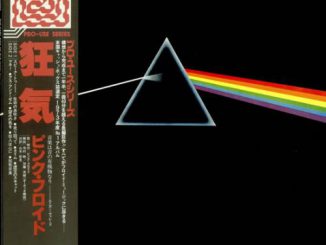
Rock star Phil Lynott was recording his second solo album in a studio in Soho and, as usual, the control room was overflowing with hangers-on.
Lynott made a show of conducting a headcount – 12 people. Gazing at the expectant entourage, he carefully prepared 12 lines of cocaine. And then he snorted them all himself.
“He sat next to me and clenched the edge of the desk,” says the producer, Kit Woolven. “His hands went pure white, he was holding the desk so tightly.”
The gesture was both a rebuke to the freeloaders and a characteristic display of machismo. Lynott – Ireland’s first bona fide rock star and one of popular music’s most notorious hellraisers – always prided himself on his ability to drink more, snort more and generally be more rock ‘n’ roll than anyone else.
The story is recounted in Cowboy Song, the first ever authorised biography of Lynott, published to coincide with the 30th anniversary of the singer’s death at the age of 36. Head and shoulders above the usual rock hagiography, the book is by the well-respected music writer Graeme Thomson, who won huge acclaim for his examination of the life of Kate Bush in 2010.
It paints a poignant picture of a shy, sensitive artist who loved literature, went to church with his family, and yet sacrificed his life on the altar of rock excess.
“I wanted to explore the dichotomy of someone who, at heart, is quite quiet and thoughtful but who gets a lot of his self-esteem and his identity from being a rock star and playing up to that image,” says Thomson.
“Lynott’s overt masculinity was unprecedented in an Irish musician, and it had an almost revolutionary impact. He became a figure of empowerment in a country still struggling with an inferiority complex.
“He transmitted a growing sense of cultural confidence to those who came in his slipstream, inspiring the likes of Bono.”
Lynott’s band, Thin Lizzy, was Ireland’s first supergroup and for a period in the Seventies churned out hit after hit. Its version of traditional Irish ditty Whiskey in the Jar has been covered by artists as diverse as Metallica and Pulp.
Anthemic earworm The Boys Are Back in Town is, according to Lynott’s friend Bob Geldof, one of the “top five songs about rock ‘n’ roll itself ever – spectacular”.
Cowboy Song, Dancing in the Moonlight and Don’t Believe a Word are all classic pop songs that combine Lynott’s distinctive, wistful lyrics with powerful guitar riffs.
As Thomson writes, fame for Lynott was “a self-fulfilling prophecy. Its outline was always there; he simply needed to fill in the detail.” His unusual background and unsettled childhood help to explain his ascent.
Born in 1949 in Birmingham, Lynott’s mother, Philomena, was an 18-year-old from Ireland; his father, Cecil Parris, a dashing Afro-Guyanan stowaway. The pair’s relationship quickly fizzled out and Parris departed. According to Philomena, Lynott “took his absence very badly”. School reports were poor.
At the age of seven, however, his life changed when he was sent to live with his grandparents in Dublin. He adored his grandmother and idolised his grandfather – a hard-working and unsentimental but loving couple. He quickly acquired a Dublin accent and a circle of pals.
There were just four indigenous black children among the Irish capital’s 600,000 citizens but despite this – or maybe because of it – Lynott thrived. He was a local band leader by the age of 14, the singer in a successful rock group by 18 and formed Thin Lizzy in 1969, at the age of 20.
Lynott was on bass and vocals – he had a smoky, late-night voice – Brian Downey was on drums, and there was an ever-changing procession of guitarists. Lynott was, from the beginning, the band’s acknowledged leader.
Tall, skinny and sporting a fulsome Afro, he managed to combine a little-boy-lost aura with a buccaneering swagger. Lynott was a voracious reader, keen on Camus and F Scott Fitzgerald. He published two volumes of poetry and loved Frank Sinatra, but he also believed that certain behaviour was expected of rock stars and he embraced that behaviour with enthusiasm.
“I was tired of hearing rock ‘n’ roll stars saying how sorry they were for themselves, how they disliked fame,” he told an interviewer once. “I jumped at it. I thought, great. The women were after me, people wanted to buy me drinks – I really went for it, hook, line and sinker.”
Geldof once observed that Lynott didn’t know how to go down to the shops without putting on a pair of leather trousers and getting into a limousine.
Read the rest of this Neil Armstrong at the Telegraph
Looking for Thin Lizzy vinyl, CDs, memorabilia? To see more visit eil.com



Be the first to comment